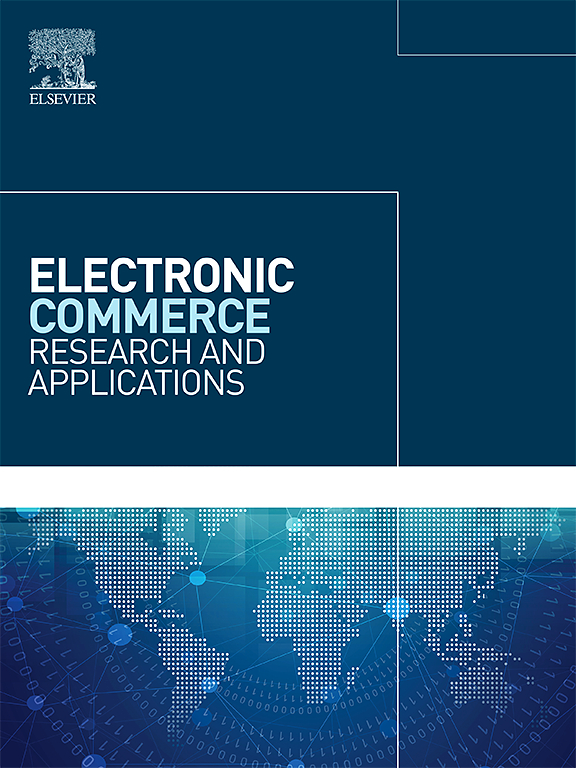揭示专家活动的驱动力:信息环境和同行行为对专家审稿人参与行为的影响
IF 5.9
3区 管理学
Q1 BUSINESS
Electronic Commerce Research and Applications
Pub Date : 2024-11-01
DOI:10.1016/j.elerap.2024.101463
引用次数: 0
摘要
在线平台上的客户参与,尤其是那些具有较高专业知识的客户参与,对公司来说至关重要。由于这些专家客户评论直接影响公司的品牌形象和销售量,因此了解专家评论者的参与行为(EREB)对公司的市场成功至关重要。本研究从两个关键情境线索出发,探讨了影响EREB的因素:来自公司信息环境的线索和来自同行专家行为的线索。研究分析了来自 144,634 位 Yelp 评论者和 5,080 家餐厅的数据。结果显示,综合评分较高的公司更有可能鼓励EREB。总体评分和同行专家评分不一致对EREB的影响各不相同:总体评级不一致会产生积极影响,而同行专家评级不一致则会产生消极影响。此外,随着同行专家参与密度的变化,EREB 呈现出羊群和分化模式。这导致了EREB 与同行专家参与密度之间的 U 型关系,并受到总体评级、总体评级不一致和同行专家评级不一致的调节。这项研究为希望吸引专家客户的营销人员提供了实用的见解,并扩展了有关专家客户参与行为的文献。本文章由计算机程序翻译,如有差异,请以英文原文为准。
Unveiling the forces driving expert activity: The impact of information environment and peer behavior on expert reviewer engagement behavior
Online platform engagement with customers, especially those with high expertise, is crucial for companies. As these expert customer reviews directly impact a company’s brand image and sales volume, an understanding of expert reviewer engagement behavior (EREB) is critical for companies’ marketplace success. This study explores the factors that influence EREB from two key situational cues: those from the company’s information environment and from peer expert behavior. Data from 144,634 Yelp reviewers and 5,080 restaurants were analyzed. The results reveal that companies with higher aggregate ratings are more likely to encourage EREB. The impact of overall and peer expert rating inconsistency on EREB varies: Overall rating inconsistency has a positive effect, while inconsistency among expert peers has a negative effect. Additionally, EREB exhibits herding and differentiation patterns in response to changes in peer expert engagement density. This results in a U-shaped relationship between EREB and peer expert engagement density, moderated by aggregate rating, overall rating inconsistency, and peer expert rating inconsistency. This study provides practical insights for marketers looking to engage expert customers and expands on the literature on expert customer engagement behavior.
求助全文
通过发布文献求助,成功后即可免费获取论文全文。
去求助
来源期刊

Electronic Commerce Research and Applications
工程技术-计算机:跨学科应用
CiteScore
10.10
自引率
8.30%
发文量
97
审稿时长
63 days
期刊介绍:
Electronic Commerce Research and Applications aims to create and disseminate enduring knowledge for the fast-changing e-commerce environment. A major dilemma in e-commerce research is how to achieve a balance between the currency and the life span of knowledge.
Electronic Commerce Research and Applications will contribute to the establishment of a research community to create the knowledge, technology, theory, and applications for the development of electronic commerce. This is targeted at the intersection of technological potential and business aims.
 求助内容:
求助内容: 应助结果提醒方式:
应助结果提醒方式:


